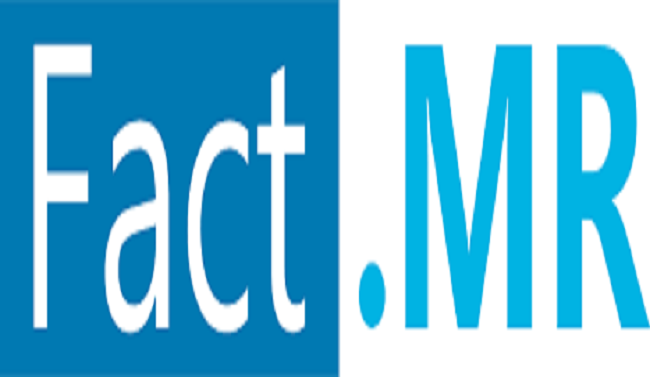The global medical beds market generated a revenue of USD 3.69 billion in 2021. The market is projected to grow at a CAGR of 3.7%, reaching an estimated valuation of approximately USD 5.5 billion by 2032.
The Medical Beds Market is a critical segment of the healthcare industry, serving a wide range of facilities, including hospitals, nursing homes, and home healthcare settings. These beds are designed to provide patients with comfort and support during treatment and recovery while ensuring convenience for caregivers. The market encompasses various types of beds, such as manual, semi-electric, and fully electric models, each catering to specific patient needs. Increasing healthcare infrastructure, a growing aging population, and rising incidences of chronic diseases are key factors driving the demand for advanced medical beds globally. Additionally, the push for better patient care and ergonomics has led to significant innovation in this space.
Market Insights
The market for medical beds has evolved to address the dynamic needs of modern healthcare. Innovations like adjustable positions, in-built monitoring systems, and enhanced mobility features have redefined the functionality of medical beds. The shift towards home healthcare has also driven demand for compact, user-friendly models that can be easily operated by non-professional caregivers. Insights into patient-centric care have emphasized the importance of features like pressure redistribution mattresses, which prevent bedsores in long-term care patients. The integration of smart technology, such as beds equipped with sensors to monitor patient movement and vitals, is an emerging trend reflecting the market's focus on enhancing patient outcomes.
Market Demand
Demand for medical beds is steadily rising due to several interrelated factors. The increasing prevalence of chronic conditions such as cardiovascular diseases, diabetes, and obesity necessitates extended hospital stays and specialized care, boosting the need for advanced medical beds. Additionally, the aging global population, with its associated health challenges, has significantly increased the demand for long-term care beds. The COVID-19 pandemic further highlighted the importance of medical beds in healthcare facilities, leading to an unprecedented surge in demand for intensive care unit (ICU) beds. Beyond hospitals, the growing popularity of home healthcare services has driven the demand for versatile and portable medical bed models that can meet diverse patient needs.
Market Growth
The Medical Beds Market is experiencing robust growth due to advancements in technology, evolving patient needs, and expanding healthcare infrastructure. Key growth drivers include increased investments in hospital infrastructure, particularly in developing regions, and a rising focus on patient safety and comfort. Innovations in design, such as beds with enhanced weight-bearing capacities, modularity, and integration with monitoring systems, are further propelling market expansion. Government initiatives aimed at improving healthcare access and quality have also contributed significantly to the market’s growth. As healthcare facilities strive to enhance their capabilities, the demand for sophisticated medical beds with cutting-edge features continues to expand.
List of Key Companies Profiled in The Report
- Stryker Corporation
- Hill-Rom Holdings Inc.
- Getinge AB
- Invacare Corporation
- Amico Corporation
- Medline Industries Inc.
- LINET spol. s r.o.
- Stiegelmeyer GmbH & Co. KG
- Others
Market Opportunities
The Medical Beds Market presents numerous opportunities for growth and innovation. One major area of opportunity lies in addressing the needs of the home healthcare segment, which is rapidly expanding due to the rising preference for at-home medical care among aging populations and chronic disease patients. Manufacturers have the chance to develop lightweight, easy-to-use, and affordable beds tailored for home use. Additionally, there is significant potential for integrating advanced technologies, such as IoT-enabled beds that can connect with hospital systems to monitor patient health and send alerts to caregivers. Emerging markets, particularly in Asia-Pacific and Africa, also present untapped opportunities as governments and private players invest in improving healthcare infrastructure.
Recent Industry News
The Medical Beds Market has seen significant activity in recent months, with manufacturers introducing new models and expanding their product lines. Several companies have launched smart beds equipped with artificial intelligence and real-time monitoring capabilities, aimed at enhancing patient care and reducing caregiver workloads. Additionally, some manufacturers are focusing on sustainability, introducing beds made from recyclable materials or those that require less energy for operation. Partnerships and collaborations between medical equipment manufacturers and healthcare providers have also been on the rise, enabling the development of customized beds for specific medical needs. These initiatives underline the dynamic nature of the market and its responsiveness to evolving healthcare challenges.
Notable Developments
Recent developments in the Medical Beds Market highlight the industry’s commitment to innovation and patient care. For instance, advancements in bed mobility features, such as enhanced caster systems and self-leveling mechanisms, have made it easier to transport patients across hospital units. In another notable trend, bariatric beds designed for heavier patients are gaining traction, addressing the growing demand for specialized solutions. The integration of telemedicine capabilities into medical beds is an exciting development, allowing patients to consult with doctors remotely while confined to their beds. Additionally, the increasing adoption of antimicrobial materials in bed construction is improving hygiene standards, reducing the risk of hospital-acquired infections, and driving demand for these enhanced models.
Market Competition
Leading medical bed companies focus on R&D to address evolving healthcare needs.
Stryker (February 2021): Launched the ProCuity bed series with low-height design, wireless connectivity, and advanced fall protection.
Hillrom (February 2021): Announced the acquisition of EarlySense’s continuous monitoring technology, enhancing its Centrella Smart+ med-surg bed for improved reliability and advanced features.


